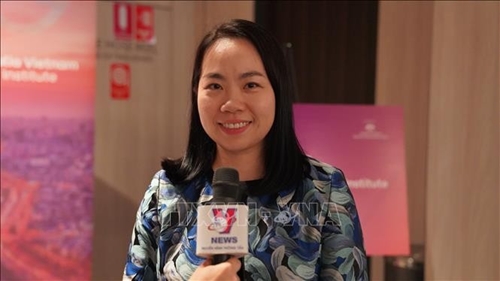In an interview with Vietnam News Agency correspondents in Sydney, Dr. Le Thu Huong, Chair of the Australia - Vietnam Policy Institute's Advisory Board, reflected on Vietnam’s journey from one of the world’s poorest, war-torn centrally planned economies to one of the fastest-growing economies today.
    |
 |
|
Dr. Le Thu Huong, Chair of the Australia - Vietnam Policy Institute's Advisory Board |
Vietnam has made significant strides in the era of globalization and free trade, Dr. Huong said, adding that the country has adeptly navigated complex U.S. - China trade tensions.
However, new waves of tariffs introduced by former US President Donald Trump, targeting multiple countries including Vietnam, present fresh challenges, she said, holding that these tariffs disrupt existing global trade agreements, requiring strategic adjustments.
Dr. Huong emphasized Vietnam’s proven adaptability, proactivity, and creativity over eight decades. The “S-shaped” nation has repeatedly demonstrated resilience and innovation to sustain growth, the expert said. “I am confident it will do so again under current conditions.”
Regarding the recent launch of a two-tier local government system in 34 provinces and cities on July 1, 2025, Dr. Huong described it as a major administrative reform. Beyond the landmark “Doi Moi” (Renewal) scheme, this new model aims to streamline procedures, cut bureaucracy, and improve the investment climate. Although initially disruptive, it is expected to enhance long-term efficiency.
On the sidelines of a workshop on Vietnam updates hosted by the Crawford School of Public Policy at the Australian National University (ANU) on August 8, Professor Chu Hoang Long, an economic expert, highlighted Vietnam’s encouraging economic performance.
Vietnam achieved an impressive growth rate of 7.52% in the first half of 2025, given the administrative reform which is believed to have somewhat affected efficiency. Prof. Long expressed optimism that growth will accelerate in the second half, potentially reaching around 8% for the full year.
Amid global trade uncertainties, Professor Long acknowledged Vietnam’s proactive negotiations with the US and efforts to stabilize export markets but advised caution in economic planning for the latter half of 2025.
He pointed to Vietnam’s many advantages, especially its reputation as a friendly nation maintaining good relations with all countries worldwide. Despite global volatility, Vietnam’s broad network of positive diplomatic ties is crucial to facilitating exports and investment, he explained. When instability arises elsewhere, capital tends to flow to countries with more stable business environments. This significantly supports Vietnam’s economic development in the remainder of this year and beyond, he underscored.
Furthermore, Prof. Long expressed hope that after institutional restructuring, Vietnam’s economy will operate more smoothly with higher labor productivity.
Source: VNA